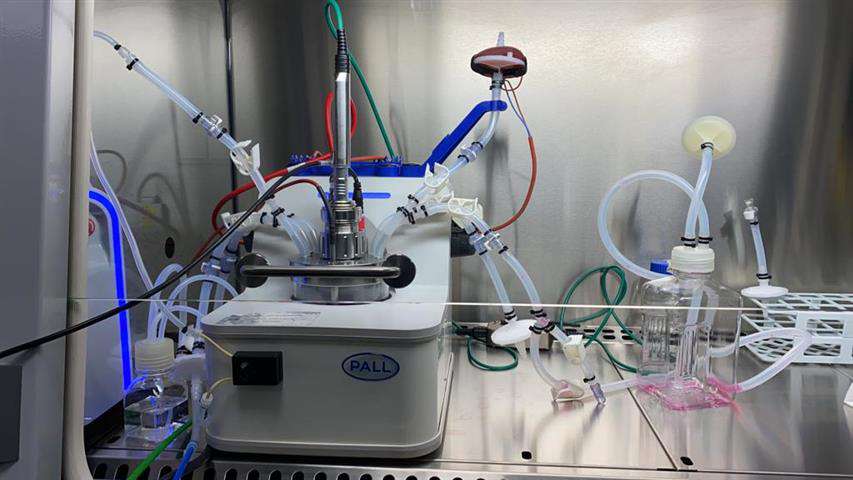The Institute of Biomedicine of Seville (IBIS) is a multidisciplinary biomedical research center that plan to develop and rapidly transfer process knowledge into the clinic setting with support from the European Infrastructure for Translational Medicine (EATRIS). Clinical trials of CAR-T therapies, where patients’ T-cells are adapted using a lentiviral vector to target cancerous cells, offer new hope for the effective treatment of many forms of cancer. IBIS is developing a production capability to support their growing pipeline of clinical trials. This includes investigational therapies for multiple myeloma, acute leukemia and hematopoietic stem cell transplantation. IBIS plans to extend this as a service to other healthcare partners in the region.
The production of these vectors under GMP conditions and at a larger scale than used for research is the next step in achieving this goal. The build of a new facility is in progress and targeted to support clinical production by the end of 2022. The technical transfer of manual laboratory-scale production methods, using flatware for cell culture and ultracentrifugation for purification, to technology better suited to clinical-scale production is a new challenge, but one that IBIS is also on track to overcome.
“Our main focus was to select the right bioreactor for this specific bioprocessing platform. The bioreactor starts everything” said Dr Estefania Garcia Guerrero. “It will give you the supernatant that contains the virus which is the key product in our CAR-T cells. If you have a very good quality of virus, you will have a better, higher yield of CAR-T cells at the end. IBIS discovered Pall’s iCELLis® Nano bioreactor system and when combined with Polyplus’s PEIpro transfection reagent, the performance met the upstream expectations set by the published data for this combination. This reduced the often time-consuming journey of process development and optimization, and provided a strong starting point to support the clinical production plans.”
Downstream optimization is still in progress but is on track with Cytiva’s ÄKTA pure and ÄKTA flow systems providing a strong automation platform for the scalable chromatography and ultrafiltration operations that form the bulk of the downstream process.
“The iCELLis fixed-bed bioreactor technology is supporting a rapidly growing community of process developers looking for an efficient and scalable solution for viral vector production” said Dr Clive Glover, General Manager of Pall’s Gene Therapy business. “We work closely with Cytiva, and together we provide an accessible complete process solution to accelerate and de-risk the journey from research to clinical production. We are proud to assist those that use these technologies to deliver life changing therapies.
